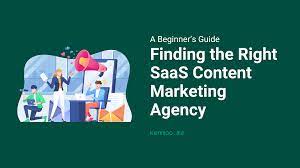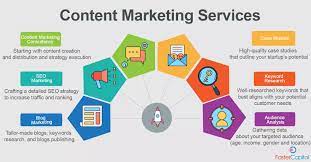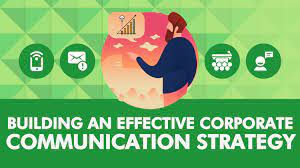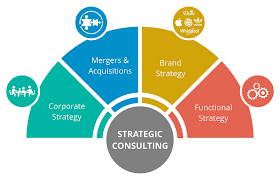Effective Communication Strategies: Unlocking Success in the Digital Age
In today’s fast-paced and interconnected world, effective communication has become more critical than ever before. Whether it’s in business, relationships, or everyday interactions, the ability to convey ideas, thoughts, and emotions clearly and concisely is key to achieving success. This article explores the importance of communication strategies and provides insights into how they can be harnessed to unlock opportunities and drive positive outcomes.
A well-defined communication strategy serves as a roadmap for any individual or organization seeking to connect with their target audience. It outlines clear objectives, identifies key messages, and determines the most appropriate channels for reaching intended recipients. By developing a robust strategy, businesses can enhance their brand reputation, improve customer relationships, and gain a competitive edge.
One crucial aspect of effective communication is understanding your audience. To deliver messages that resonate with them, it is essential to conduct thorough research and gain insights into their needs, preferences, and communication habits. This knowledge allows you to tailor your messages appropriately and choose the most suitable channels for reaching your target demographic.
In today’s digital age, technology has revolutionized the way we communicate. From social media platforms to email marketing campaigns and video conferencing tools, there are numerous channels available for reaching audiences globally. However, it’s important not to overlook traditional methods such as face-to-face meetings or printed materials when they remain relevant in specific contexts.
Consistency is another key element of successful communication strategies. By maintaining a consistent tone of voice across all channels and touchpoints, you establish trust with your audience and reinforce your brand identity. Consistency also helps ensure that your messages are understood accurately while avoiding confusion or misinterpretation.
Timing plays a crucial role in effective communication strategies as well. Knowing when to deliver your message can significantly impact its reception and impact. Consider factors such as current events or industry trends that may influence how your message will be received by your audience. By staying informed and adapting your communication strategy accordingly, you can maximize its effectiveness.
Furthermore, feedback is a valuable component of any communication strategy. Actively seeking and listening to feedback from your audience allows you to gauge the effectiveness of your messages and make necessary adjustments. Whether it’s through surveys, focus groups, or monitoring social media conversations, feedback provides invaluable insights that can help refine your communication approach.
Finally, it’s important to remember that effective communication is a two-way street. Encouraging open dialogue and active listening fosters meaningful connections with your audience and enables you to address concerns or questions promptly. By engaging in conversations rather than simply broadcasting messages, you build stronger relationships and establish yourself as a trusted source of information.
In conclusion, communication strategies are an essential tool for achieving success in today’s dynamic world. By understanding your audience, choosing the right channels, maintaining consistency, considering timing, seeking feedback, and fostering two-way communication, you can unlock opportunities and drive positive outcomes. Embrace the power of effective communication strategies and watch as they propel you towards success in all areas of life.
9 Effective Communication Strategies: Enhancing Your Interactions
- Be mindful of your body language – make sure it is open and inviting.
- Listen actively to what the other person is saying – don’t be afraid to ask questions for clarification.
- Use clear, concise language when communicating with others – avoid jargon and ambiguous terms where possible.
- Keep an open mind when discussing topics with someone else – try not to be too opinionated or judgemental.
- Respect the opinions of those you are talking to, even if they differ from your own views or beliefs.
- Avoid interrupting or dominating conversations – allow everyone involved in a discussion to have their say without interruption or judgement from others participating in the conversation.
- Show empathy towards those you are speaking with by taking into consideration how they may feel about certain topics being discussed, and responding accordingly with understanding and respect for their feelings and opinions on the matter at hand..
- Use humour appropriately during conversations as it can help lighten any tension that may arise between two parties involved in a discussion, while also helping them to relate better on a personal level which can aid effective communication overall..
- Communicate regularly with people both inside and outside of your organisation so that you stay up-to-date on important developments within the company, as well as staying connected with key contacts who could potentially be beneficial in future business endeavours
Be mindful of your body language – make sure it is open and inviting.
Be Mindful of Your Body Language: The Power of Openness and Invitation in Communication
When it comes to effective communication, it’s not just about the words we say but also the nonverbal cues we send. Our body language can speak volumes, often conveying messages that words alone cannot express. One crucial tip for enhancing communication strategies is to be mindful of your body language and ensure that it is open and inviting.
Body language encompasses a wide range of subtle cues, including facial expressions, gestures, posture, and eye contact. These nonverbal signals can significantly impact how our messages are received and interpreted by others. By being conscious of our body language, we can create an environment that encourages open dialogue and fosters better understanding.
An essential aspect of open body language is maintaining eye contact. When engaging in a conversation, making eye contact shows respect and genuine interest in the other person’s thoughts or ideas. It conveys attentiveness and helps establish a connection between individuals. However, it’s important to strike a balance – too much eye contact can be intimidating, while too little may give the impression of disinterest.
Posture also plays a vital role in communicating openness. Standing or sitting upright with shoulders relaxed sends a signal of confidence and approachability. On the other hand, crossed arms or slouched shoulders may indicate defensiveness or disengagement. By consciously adopting an open posture, we invite others to feel comfortable sharing their thoughts and perspectives.
Facial expressions are another powerful aspect of body language. A warm smile can instantly create a positive atmosphere and make others feel welcome. Smiling not only conveys friendliness but also signals that you are receptive to what others have to say. Conversely, frowning or displaying negative facial expressions can create barriers to effective communication.
Gestures also contribute to our overall body language. Using open hand movements rather than closed fists or pointing fingers helps create an inviting environment for discussion. Avoiding excessive fidgeting or nervous movements demonstrates composure and confidence, enhancing the trust and rapport between communicators.
Being mindful of your body language is particularly crucial in situations where emotions may be running high or when discussing sensitive topics. By consciously projecting open and inviting body language, you can help diffuse tension, encourage empathy, and create an atmosphere conducive to constructive dialogue.
In conclusion, our body language speaks volumes in communication. By being mindful of our nonverbal cues and ensuring that they are open and inviting, we can enhance our ability to connect with others effectively. Maintaining eye contact, adopting an open posture, displaying positive facial expressions, and using appropriate gestures all contribute to creating an environment that fosters understanding and mutual respect. So, let’s harness the power of body language alongside our words to become more skilled communicators.
Listen actively to what the other person is saying – don’t be afraid to ask questions for clarification.
The Power of Active Listening: Enhancing Communication Strategies
In the realm of effective communication, listening actively is a skill that can make a significant difference in how we connect with others. When engaging in conversations, it is crucial to truly hear and understand what the other person is saying. This article focuses on the importance of active listening and how it can enhance our communication strategies.
Active listening involves giving our full attention to the speaker, not only hearing their words but also understanding their message and intentions. By being fully present in the conversation, we demonstrate respect and show that we value the speaker’s thoughts and opinions.
One key aspect of active listening is avoiding assumptions or jumping to conclusions. Instead, we should embrace curiosity and be unafraid to ask questions for clarification. By seeking further explanation or examples, we ensure that we have a complete understanding of what the speaker intends to convey. This not only helps us avoid misunderstandings but also encourages deeper engagement in the conversation.
Asking questions also demonstrates genuine interest in what the other person has to say. It shows that we are actively engaged and willing to invest time and effort into understanding their perspective. This level of attentiveness fosters trust, strengthens relationships, and encourages open dialogue.
Moreover, active listening allows us to pick up on non-verbal cues such as body language, facial expressions, or tone of voice. These subtle signals provide valuable insights into the emotions behind the words spoken. By paying attention to these cues and asking appropriate questions for clarification, we can better grasp the speaker’s true feelings and respond empathetically.
Active listening also benefits problem-solving and decision-making processes. By truly understanding all aspects of an issue through active questioning and clarification, we gather all necessary information before drawing conclusions or offering solutions. This approach leads to more effective problem-solving outcomes as it ensures that decisions are based on a comprehensive understanding of the situation at hand.
In professional settings, active listening plays a vital role in building strong teams and fostering collaboration. By actively listening to colleagues, we create an inclusive environment where everyone’s voice is heard and valued. This promotes a culture of trust, respect, and innovation.
In personal relationships, active listening deepens connections and strengthens bonds. It demonstrates our willingness to be present for others, to understand their perspectives, and to support them emotionally. Through active questioning and clarification, we show that we genuinely care about their thoughts and feelings.
In conclusion, active listening is a powerful tool that enhances our communication strategies. By truly hearing and understanding what others are saying, we foster meaningful connections, avoid misunderstandings, and promote effective problem-solving. Embracing curiosity and asking questions for clarification demonstrate our commitment to open dialogue and encourage a deeper understanding of one another. So let us listen actively, ask questions fearlessly, and unlock the full potential of our communication skills.
Use clear, concise language when communicating with others – avoid jargon and ambiguous terms where possible.
The Power of Clarity: Communicating Effectively with Clear and Concise Language
When it comes to effective communication strategies, one golden rule stands out: use clear and concise language. In a world filled with information overload, getting your message across in a succinct and understandable manner is crucial. By avoiding jargon and ambiguous terms, you can ensure that your message resonates with your audience and leaves no room for confusion.
Jargon, often used within specific industries or professions, can act as a barrier to effective communication. While it may be familiar to those within the field, it can leave others feeling excluded or overwhelmed. By eliminating jargon from your communication, you create an inclusive environment where everyone can understand and engage with your message.
Ambiguous terms are another pitfall that can hinder effective communication. Vague or unclear language leaves room for misinterpretation, leading to misunderstandings or misaligned expectations. To avoid this, strive for clarity in your choice of words and expressions. Be specific and provide concrete examples when necessary to ensure that your message is understood precisely as intended.
Using clear and concise language not only enhances understanding but also saves time for both the speaker and the listener. By eliminating unnecessary fluff or complex terminology, you streamline the communication process. This allows messages to be conveyed more efficiently, ensuring that important information is delivered without overwhelming or confusing the recipient.
Remember that effective communication is not just about what you say but also about how you say it. Pay attention to tone and delivery when using clear and concise language. Be mindful of your audience’s level of familiarity with the topic at hand and adjust your language accordingly. Strive for simplicity without sacrificing accuracy or depth.
By adopting clear and concise language in your communication strategies, you demonstrate respect for your audience’s time and intellect. You build trust by presenting information in a straightforward manner that is easy to comprehend. This creates a positive impression of professionalism and expertise while fostering stronger connections with those you interact with.
In conclusion, the power of clear and concise language cannot be underestimated in effective communication strategies. By avoiding jargon and ambiguous terms, you ensure that your message is accessible, understood, and remembered. Embrace clarity as a guiding principle in your communication efforts, and watch as your messages become more impactful, engaging, and influential.
Keep an open mind when discussing topics with someone else – try not to be too opinionated or judgemental.
Keeping an Open Mind: The Key to Effective Communication
In today’s diverse and interconnected world, effective communication is not just about expressing our own thoughts and opinions; it’s also about actively listening and understanding others. One crucial tip for successful communication strategies is to keep an open mind when engaging in discussions with someone else. By avoiding excessive judgement or rigid opinions, we create a conducive environment for meaningful dialogue and foster stronger connections.
When we approach conversations with a preconceived mindset or strong biases, we limit our ability to truly understand the perspectives of others. Being opinionated or judgemental can hinder the flow of communication and prevent us from building empathy or finding common ground. Instead, by embracing an open mind, we create space for diverse ideas and experiences to be shared.
Keeping an open mind means being receptive to different viewpoints, even if they differ from our own. It involves actively listening to others without interrupting or dismissing their thoughts prematurely. By doing so, we demonstrate respect for their opinions and show a genuine interest in understanding their perspective.
An open-minded approach allows us to uncover new insights, challenge our own assumptions, and broaden our horizons. It encourages us to ask questions, seek clarification, and explore alternative viewpoints. Through this process of active engagement, we can gain a deeper understanding of complex issues and find innovative solutions.
Moreover, keeping an open mind fosters a sense of inclusivity and encourages diverse voices to be heard. It creates an environment where individuals feel safe expressing their thoughts without fear of judgement or rejection. This inclusivity promotes creativity and collaboration as people feel valued and empowered to contribute their unique ideas.
Practicing open-mindedness also helps build stronger relationships based on trust and mutual respect. When others perceive that we genuinely listen to them without prejudice, they are more likely to reciprocate this attitude. This creates a positive feedback loop where communication becomes more constructive, fostering deeper connections with those around us.
In conclusion, keeping an open mind is a vital tip for effective communication strategies. By setting aside our own biases and judgements, we create an environment that encourages dialogue, understanding, and collaboration. Embracing diverse perspectives enriches our own knowledge and strengthens our relationships with others. So, the next time you engage in a conversation, remember to keep an open mind and let the power of open-mindedness transform your communication experiences.
Respect the opinions of those you are talking to, even if they differ from your own views or beliefs.
Respecting Diverse Perspectives: A Key Element of Effective Communication Strategies
In the realm of communication, one valuable tip that often gets overlooked is the importance of respecting the opinions of those we engage with, even when their views or beliefs differ from our own. In today’s increasingly diverse and interconnected world, embracing this approach is not only a sign of open-mindedness but also a fundamental aspect of effective communication strategies.
When engaging in conversations or discussions, it is natural for individuals to have their own unique perspectives shaped by their experiences, knowledge, and beliefs. These differing viewpoints contribute to the richness and diversity of conversations, offering opportunities for growth and learning. By respecting these opinions, we create an environment that encourages open dialogue and fosters mutual understanding.
One significant benefit of respecting diverse perspectives is that it promotes empathy and strengthens relationships. When we genuinely listen to others without judgment or dismissiveness, we show them that their thoughts and ideas are valued. This fosters a sense of trust and respect between individuals, laying the foundation for meaningful connections and productive conversations.
Moreover, by acknowledging differing opinions, we create space for constructive discussions. Engaging with diverse viewpoints allows us to challenge our own assumptions, broaden our horizons, and gain new insights. It opens doors to alternative solutions or approaches that we may not have considered before. Embracing different perspectives can lead to innovative thinking and creative problem-solving.
Respecting diverse opinions also contributes to a more inclusive society. When we value and acknowledge the views of others, regardless of whether they align with our own beliefs or not, we promote a culture of acceptance and tolerance. This helps bridge divides between individuals or groups who may hold contrasting ideologies or backgrounds.
However, it’s important to note that respecting diverse perspectives does not mean compromising on personal values or principles. It simply means approaching discussions with an open mind while maintaining respect for others’ right to hold different opinions. It is through respectful dialogue that we can find common ground, build bridges, and work towards solutions that benefit all parties involved.
In conclusion, respecting the opinions of those we communicate with is a crucial element of effective communication strategies. By embracing diverse perspectives, we foster empathy, strengthen relationships, encourage constructive discussions, and contribute to a more inclusive society. So, let us remember to approach conversations with an open mind, ready to listen and learn from others’ viewpoints. In doing so, we create an environment where communication thrives and positive change can take place.
Avoid interrupting or dominating conversations – allow everyone involved in a discussion to have their say without interruption or judgement from others participating in the conversation.
The Power of Active Listening: Allowing Voices to Be Heard
In the realm of effective communication strategies, one tip stands out as a fundamental principle: avoid interrupting or dominating conversations. In today’s fast-paced world, where everyone is eager to express their opinions and be heard, it is crucial to create an environment that fosters open dialogue and respects the voices of all participants.
Interrupting or dominating conversations can hinder the flow of ideas, stifle creativity, and create an atmosphere of disengagement. When individuals feel unheard or judged, they may become hesitant to share their thoughts openly. This not only limits the diversity of perspectives but also hampers the potential for collaborative problem-solving and innovation.
Active listening lies at the heart of this communication strategy. By actively listening, we demonstrate respect for others’ viewpoints and create space for meaningful contributions. It involves giving our full attention to the speaker, without jumping in with our own thoughts or judgments prematurely.
When we allow everyone involved in a discussion to have their say without interruption or judgement from others participating in the conversation, we cultivate an environment that encourages trust, empathy, and understanding. Each person’s unique experiences and insights can enrich the conversation and lead to more comprehensive solutions.
Practising active listening requires patience and self-awareness. It involves restraining our impulse to interject with our own ideas or opinions while someone else is speaking. Instead, we focus on truly understanding their perspective by actively absorbing their words, body language, and emotions.
By adopting this communication strategy in both personal and professional settings, we can foster stronger relationships built on mutual respect and collaboration. When people feel valued for their contributions, they are more likely to engage fully in discussions and share their expertise openly.
Moreover, by avoiding interruptions or dominating conversations ourselves, we set an example for others to follow. Our behaviour influences the dynamics within a group discussion or team meeting. When others observe us actively listening and allowing everyone to have their say, they are more likely to adopt the same approach, creating a positive ripple effect.
In conclusion, avoiding interruption or domination in conversations is a powerful communication strategy that allows all voices to be heard. By practising active listening and creating a safe space for open dialogue, we foster an environment of inclusivity, collaboration, and respect. Let us embrace this strategy and unlock the full potential of our conversations by valuing each person’s unique perspective.
Show empathy towards those you are speaking with by taking into consideration how they may feel about certain topics being discussed, and responding accordingly with understanding and respect for their feelings and opinions on the matter at hand..
The Power of Empathy in Communication Strategies: Building Strong Connections
In the realm of effective communication strategies, one often overlooked yet incredibly powerful aspect is empathy. The ability to understand and acknowledge the emotions and perspectives of those we interact with can have a profound impact on the quality of our conversations and relationships. By showing empathy towards others, we foster an environment of respect, understanding, and trust.
When engaging in conversations, it is crucial to consider how the other person may feel about certain topics being discussed. Each individual brings their own experiences, beliefs, and values to the table. By taking a moment to put ourselves in their shoes, we can gain insight into their emotions and better understand their point of view.
Responding with empathy means acknowledging and respecting their feelings and opinions on the matter at hand. It involves actively listening without judgment or interruption, allowing them to express themselves fully. This creates a safe space for open dialogue where both parties feel heard and valued.
Empathy not only enhances our understanding of others but also helps us tailor our communication approach accordingly. When we respond with empathy, we choose our words carefully to ensure they align with the emotions expressed by the other person. This demonstrates that we genuinely care about their perspective and are willing to engage in meaningful conversation rather than pushing our own agenda.
By showing empathy in our communication strategies, we build stronger connections with those around us. People are more likely to be receptive when they feel understood and respected. Empathy fosters an environment conducive to collaboration, problem-solving, and conflict resolution.
Moreover, empathy contributes to building trust within relationships. When others perceive that we genuinely care about their feelings and opinions, they are more likely to trust us as reliable communicators. Trust forms the foundation for long-lasting relationships built on mutual respect and understanding.
It is important to note that empathy does not equate agreement or compromise on our own beliefs or values. Showing empathy simply means recognizing the validity of someone else’s emotions and opinions, even if they differ from our own. It is about creating a space for open dialogue and fostering an atmosphere of respect and understanding.
In conclusion, incorporating empathy into our communication strategies can have a profound impact on the quality of our interactions. By taking into consideration how others may feel about certain topics, responding with understanding and respect, we create an environment that encourages open dialogue, builds trust, and strengthens relationships. Let us embrace the power of empathy in our conversations and witness the positive transformation it brings to our communication experiences.
Use humour appropriately during conversations as it can help lighten any tension that may arise between two parties involved in a discussion, while also helping them to relate better on a personal level which can aid effective communication overall..
The Power of Humour in Effective Communication
Communication is not just about exchanging information; it’s also about building connections and fostering understanding. In any conversation, tension can sometimes arise, making it challenging to convey messages effectively. However, there is a simple yet powerful tool that can help lighten the atmosphere and improve overall communication: humour.
Using humour appropriately during conversations can have a transformative effect on the dynamics between two parties. When tension arises, a well-timed joke or witty remark can instantly diffuse the situation, easing any discomfort or unease. It acts as a pressure valve, allowing both parties to relax and approach the discussion with a more open mind.
Humour has a unique ability to break down barriers and create common ground. When people share a laugh, they form an instant connection on a personal level. This shared experience helps them relate to each other better, fostering empathy and understanding. As a result, effective communication becomes more achievable because both parties are more willing to listen and consider different perspectives.
Furthermore, humour can make complex or sensitive topics more approachable. It lightens the mood and reduces defensiveness, making it easier for individuals to engage in constructive dialogue. By injecting appropriate humour into discussions about serious matters, you create an environment that encourages open-mindedness and creativity.
However, it’s important to note that using humour appropriately is key. Not all situations call for jokes or laughter; context and sensitivity are crucial factors to consider. It’s essential to be mindful of cultural differences, personal boundaries, and the topic at hand when deciding whether or not to use humour.
When using humour in communication, aim for inclusivity rather than exclusion. Avoid jokes that may offend or alienate others based on their background or beliefs. Instead, focus on light-hearted anecdotes or observations that everyone can appreciate.
In conclusion, incorporating appropriate humour into conversations can be an effective strategy for improving communication outcomes. By lightening tension and fostering personal connections, humour helps create a more conducive environment for open dialogue and understanding. Remember to use humour judiciously, considering the context and sensitivities of those involved. When used thoughtfully, humour can be a powerful tool to aid effective communication and build stronger relationships.
The Power of Regular Communication: Staying Informed and Connected
In the ever-evolving business landscape, effective communication is the cornerstone of success. One valuable tip for enhancing your communication strategy is to maintain regular contact with both internal and external stakeholders. By doing so, you can stay up-to-date on important developments within your organization while also nurturing connections that may prove beneficial in future business endeavors.
Within your organization, regular communication is vital for staying informed about key developments. By actively engaging with colleagues, team members, and superiors, you can gain insights into ongoing projects, updates on company goals, and changes in organizational strategies. This knowledge allows you to align your efforts with the broader objectives of the company and ensures that you are well-informed about any shifts or opportunities that may arise.
Furthermore, regular communication within your organization fosters a collaborative environment. By openly sharing information and ideas, you can enhance teamwork, encourage innovation, and build stronger relationships among colleagues. This collaborative spirit can lead to improved problem-solving capabilities and increased productivity.
Equally important is maintaining regular communication with individuals outside of your organization. Networking plays a crucial role in today’s interconnected business world. By actively staying connected with key contacts such as clients, partners, industry experts, or potential collaborators, you create a valuable network of resources that can support your future business endeavors.
Regularly communicating with external stakeholders allows you to stay abreast of industry trends and market insights. It provides an opportunity to exchange knowledge and ideas that can help shape your own strategies and decision-making processes. Additionally, by nurturing these relationships over time through consistent communication, you establish trust and credibility within your professional network.
In the fast-paced business environment we operate in today, technology has made it easier than ever to maintain regular communication. Utilize various channels such as email, instant messaging platforms, video conferencing tools or social media networks to connect with both internal and external contacts efficiently.
However, it’s important to strike a balance in your communication efforts. While regular contact is encouraged, be mindful of not overwhelming others with excessive messages or irrelevant information. Respect their time and prioritize quality over quantity when engaging in conversations.
In conclusion, regular communication with people both inside and outside your organization is a powerful strategy for staying informed and connected. By actively engaging with colleagues, you can stay up-to-date on important developments within the company and foster a collaborative environment. Simultaneously, maintaining connections with external contacts cultivates a valuable network that can support future business endeavors. Embrace the power of regular communication and witness how it strengthens your knowledge base, relationships, and overall success in the business world.







